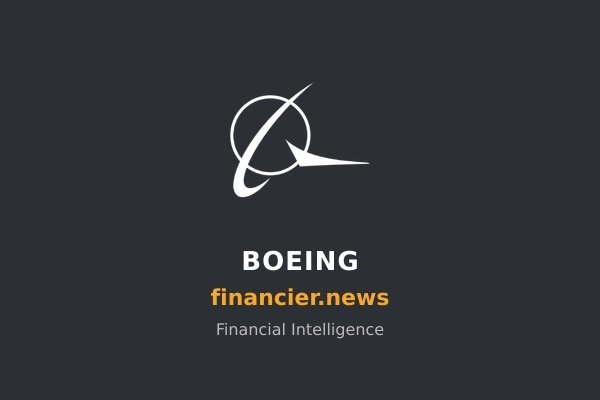$BA $SPY #Boeing #ChinaRelations #Aerospace #TradeWar #Geopolitics #BusinessNews #USChinaTensions #AviationIndustry #GlobalTrade #CorporateLeadership
Who is Boeing’s New Mandarin-Speaking China President and Why It Matters?
In the latest boeing news, the aviation giant has appointed a Mandarin-speaking former White House advisor as its new president for China. This strategic hire comes at a time when Boeing is navigating the complex landscape of U.S.-China relations. With ongoing trade tensions and competitive maneuvers between the two superpowers, Boeing has increasingly found itself in a precarious position, often perceived as a bargaining chip amid diplomatic negotiations.
The new president’s appointment signals Boeing’s commitment to strengthening its presence in China, a market crucial for the company’s recovery and future growth. As the world’s largest aviation market, China represents a significant opportunity for Boeing, especially in the face of fierce competition from its main rival, Airbus. The ability to communicate effectively and build relationships in Mandarin is an essential asset for the new president, who will be expected to engage with Chinese regulators and industry leaders.
Understanding the Context of U.S.-China Tensions
Boeing’s new leadership comes against a backdrop of escalating tensions between the United States and China, particularly in the technology and trade sectors. The aviation industry has been directly impacted, with tariffs and regulatory challenges complicating international business operations. As Boeing navigates these challenges, the company’s strategy will likely focus on fostering goodwill and collaboration with Chinese stakeholders.
Moreover, the ongoing geopolitical climate has made it clear that U.S. companies operating in China must be adept at managing local relationships while also aligning with broader U.S. policy objectives. This new appointment may help Boeing balance these competing demands, as the president’s background in government provides a unique perspective on navigating policy implications.
The Road Ahead for Boeing in China
The future of Boeing in China hinges on the successful execution of its strategies in this critical market. As the company seeks to regain its footing following the setbacks from the 737 MAX crisis and the pandemic’s impact on air travel, the new president will play a pivotal role in steering Boeing through these turbulent waters.
In addition to navigating regulatory hurdles, the company will need to invest in building relationships with local airlines and government entities. This approach is essential for securing future orders and ensuring that Boeing remains competitive in the rapidly evolving aviation landscape.
Boeing’s ability to adapt its business model in response to changing market dynamics will be crucial. The recent appointment of a Mandarin-speaking leader reflects the company’s understanding of the need for cultural and linguistic fluency in achieving business success in China. It also underscores the importance of having leaders who are not only skilled in aviation but also adept at understanding the complexities of international relations.
Conclusion: A Strategic Move for Boeing’s Future
In summary, Boeing’s selection of a Mandarin-speaking former White House advisor as its new president for China represents a strategic initiative aimed at enhancing its operations in one of the world’s most vital markets. As the company grapples with U.S.-China tensions, this leadership change underscores its commitment to fostering strong relationships and navigating the challenges that lie ahead. The aviation giant’s future success in China will ultimately depend on its ability to leverage this new leadership and effectively engage with local stakeholders.
For more insights and updates on the stock market, visit our stock news section.







Comments are closed.